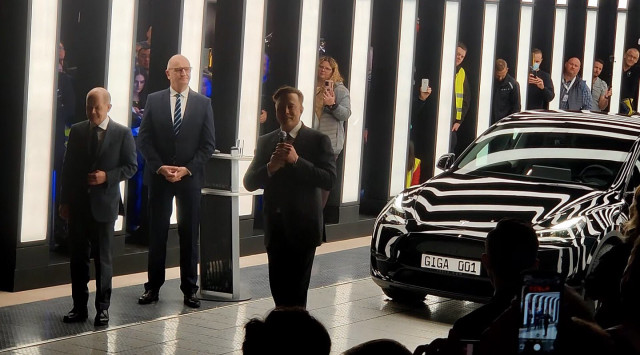US-based EV and clean energy firm Tesla, Inc has put open its much-awaited sixth 'gigafactory' near Berlin in Germany, after a delay of over eight months. This is the first-ever giga-scale EV and battery manufacturing facility of the company in Europe, making it a significant milestone in terms of its expansion plans to dominate the global market.
With an investment of over €5 billion, the latest Tesla facility is also considered as the largest car manufacturing-related investment in Germany in recent times, with a capacity to 500,000 electric cars annually once the production expands in the coming years.
"This is a great day for the factory," describing it as "another step in the direction of a sustainable future", said Elon Musk, founder and CEO of Tesla Inc. German Chancellor Olaf Scholz, who joined Musk at the opening event, was reported to have commented that the plant was a sign of progress and the future of the car industry.
The Berlin plant rolled out the first batch of 30 Model Y cars on the day of the opening. On the battery manufacturing front, the plant is said to have an annual capacity of up to 100 GWh to start with, which can be expanded to 200 GWh. To put this perspective, the initial battery capacity is more than adequate to produce over 1 million units of Model Y.
It is expected that Tesla will be making the improved next-generation 80 by 60-millimeter battery cells with higher energy density and reduced charging duration. This would mean at least 16 percent improvement in the driving range of its electric cars.
Elon Musk has indicated that ramping-up of production at the Berlin facility to its full capacity will take more than two years. It is predicted that Tesla may roll out about 30,000 cars in the first six months, and that the production is set to accelerate in full swing in the later half of this year.
Together with other giga factories in US and China, Tesla hopes to become a mass producer of electric cars globally, aiming about 1.3 million units in 2023.
Post cover photo source: @wunderbar2gethr (Twitter)
Read More

